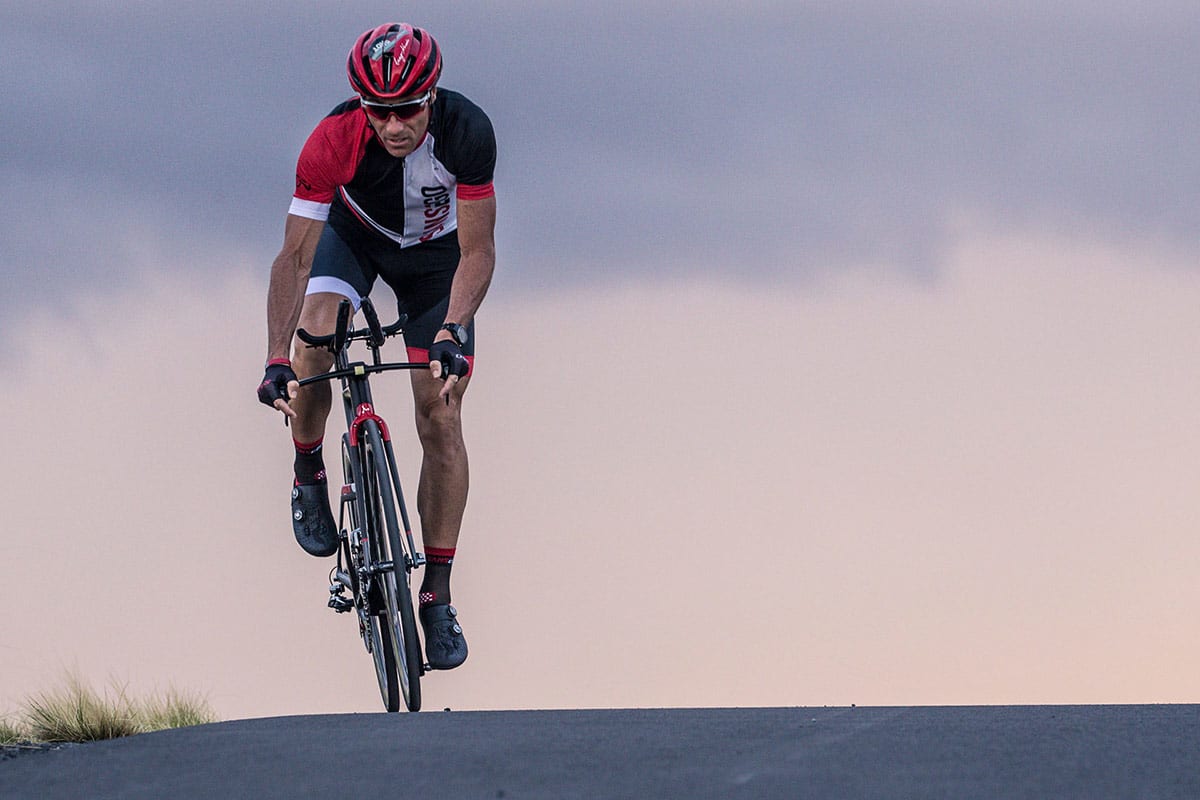
As one of the most remarkable and respected athletes in the endurance community, Craig "Crowie" Alexander sat down with us to discuss his key training considerations.
Without a doubt, Craig "Crowie" Alexander is one of the most recognized names in the sport of triathlon. With Crowie's lengthy resume of achievements and remarkable reputation, he is one of the most respected people in all of endurance sport. Here, he lays out four key aspects of training to focus on going into the season.
The Top 4 Things You Should Be Doing Now To Be Faster This Summer!
1. Improve your aerobic conditioning
This is the longer duration, lower intensity (zone 2) work. This is the time to work on "becoming a fat-burner"
2. Commit to strength training
Triathlon is a strength-based sport; strong muscles are resistant to fatigue and better at producing power/speed.
How?
a) Incorporate hill work into your long/low intensity sessions
b) Have a very specific and planned strength program.
Core and stability: target the functional and deeper muscles that steady + support the pelvis. 2-3 x 30min a week and you can accomplish a lot. You can introduce foundational moves and then progress them to be more dynamic.)
Develop an actual weightlifting routine, preferably with professional guidance to asses your target areas. 2 x week - basic squats, DL, hamstring that progressed into more explosive, power moves: cleans, squat press, etc.)
c) Incorporate discipline-specific sessions utilizing high load to target strength (ie. big gear work on bike)
*TECHNIQUE FIRST
3. Add “a sprinkling of speed”
Incorporating a bit of intensity assists in the transition from Base Phase into the season but doesn’t harm the physiological goals of early season prep.
4. Pay attention to your fueling
Incorporate good quality fats during this time of year
Don’t neglect protein because of the extra calorie requirements and the strength aspect of training.
Fuel with carbohydrates accordingly
Play with fasted sessions, but do them mindfully and at low intensities. Craig would incorporate them by not touching carbohydrates for the first 60min, then 90min, then 120min.
Be mindful of hydration especially when doing indoor rides and training sessions.
Q & A Highlights:
Q: What advice would you give to aging athletes that are trying to juggle family, work, and training and still want to be competitive?
You have to be very organized with your time. One thing I would do is sit down with my wife and write down the training plan for everyone in the house to know what the plan was. Then I found out what the important events/things were (the non-negotiables).
Also, as we get older, recovery is not as good. Factor more recovery time in between hard sessions. Additionally, emphasize sleep and supplement your diet.
Q: What tips do you have for not going too hard, too often?
*In reference to Zwift* - While it’s a great tool, don’t join a group ride every time. Just log in, pick a course, and ride in your zones. Be disciplined enough to stick to your plan when needed.
Q: Fueling tips for racing in extreme heat?
Pacing: drop your threshold by 5-8% to adjust for the impact of heat + humidity in those situations.
Sauna: use a sauna protocol to stimulate some of the changes our body needs to operate in a hotter climate.
Fueling: have a nutrition strategy and practice that plan; it should be focused around calories per hour, hydration(fluid) need per hour, and electrolytes per hour.
Q: How do you train yourself mentally?
Visualize certain aspects of your event in your training sessions. For me, it may be the first 200-300m of the swim where I had to get out hard. I could take myself mentally “away” and be at an event. Also, changing my thought process over time; patterns that reinforce positive pathways.
